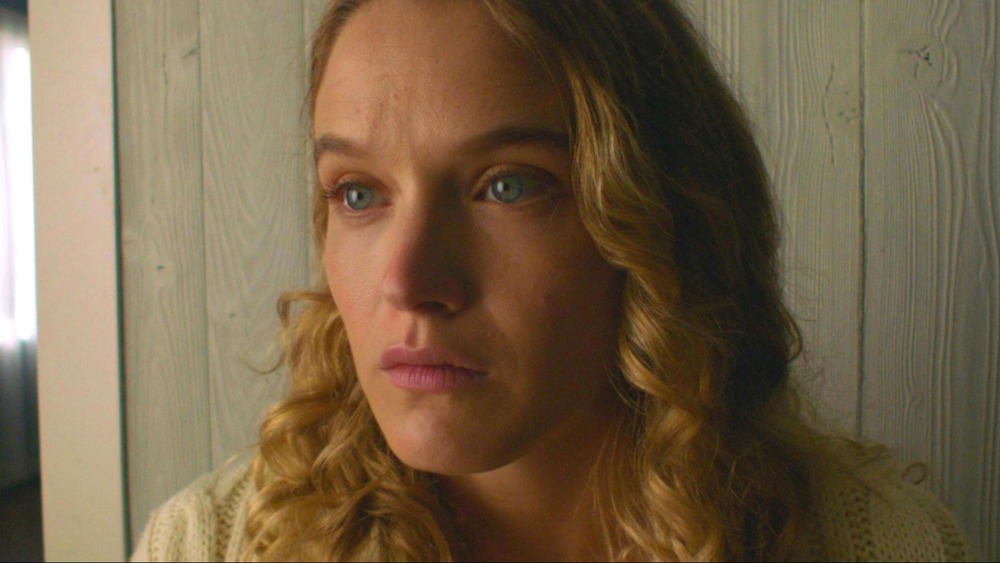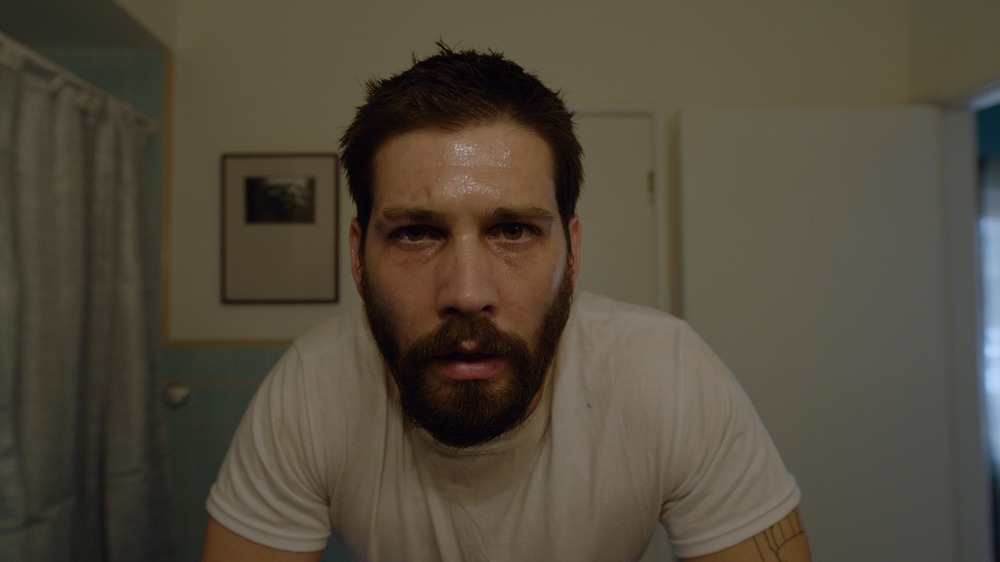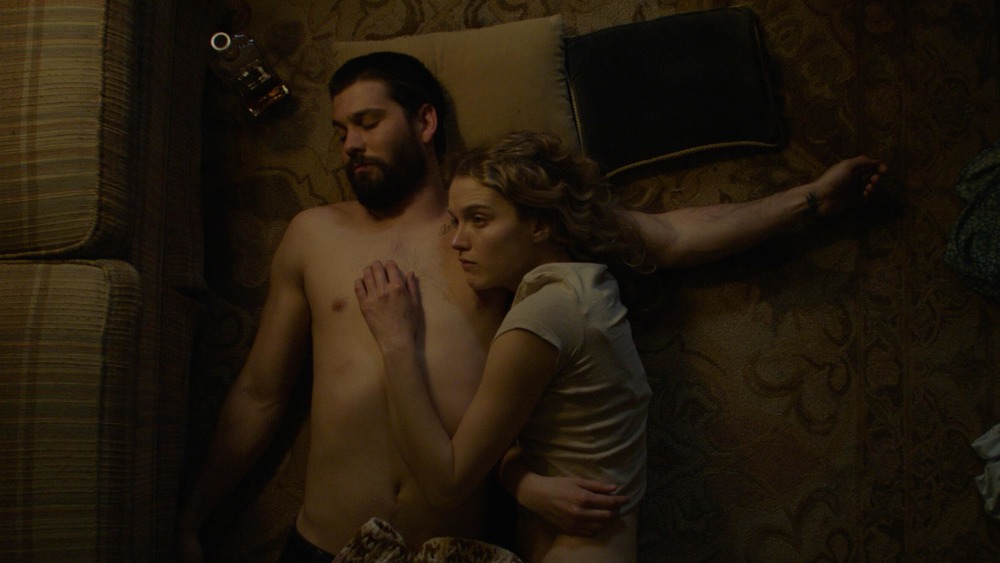The Ending Of Into The Dark: Tentacles Explained
Into the Dark: Tentacles is the latest installment in Hulu and Blumhouse's monthly holiday-adjacent horror anthology. This month's holiday is Valentine's Day, which means we get an erotic psychological horror-thriller about a relationship that goes very, very wrong. Tentacles comes from writer Alexandra Pechman and director Clara Aranovich and tells the story of Tara (Dana Drori) and Sam (Casey Deidrick) from the sexy start of their relationship to the bloody end.
Tara and Sam have sex almost immediately after meeting each other, and Tara moves in with Sam, a talented photographer, right after. They build intimacy through sex, their relationship progresses very quickly, and they get engaged. But Tara has things she won't talk about, like what her life was like before she met Sam or how she got the scar on her abdomen. As the film progresses, Tara's secrets and lies get scarier, and Sam keeps getting physically sicker, until he finally gathers enough information from people who used to know Tara to confront her about the truth. This sets up the end of the movie.
It turns out that Tara is not Tara at all. She's some sort of demon who has been gradually turning into Sam. She got close to him in order to steal his memories and his personality and his body. "I've been taking out a little bit every night," she tells him. "Absorbing you. Becoming you." As she tells him the truth, her scar splits open and a tentacle shoots out and wraps around his neck. He escapes, but Tara finds him at his best friend Esther's (Kasey Elise) house. She kills Esther, partially because Sam and Esther have always harbored romantic feelings for each other. She takes Sam out to the desert and kills him, too, and then takes over his identity.
We've all seen Tentacles in real life
Tentacles literalizes the fear of falling in love with someone who turns out to not be the person you thought they were, and losing your own sense of self in the process.
In an interview with Black Girl Nerds, screenwriter Alexandra Pechman said that the inspiration for Tentacles came from romantic relationships. "I think it's a pretty universal experience that you worry that you're falling in love really fast, and moving in together, and all of the different things that come with relationships, and then you're sort of wondering, 'Where did I go?'" she said. "And that's something of what these characters start to experience, but in a horror lens."
Everyone has been in or watched a loved one go through a relationship like Sam and Tara's, where the feelings are so intense that red flags get ignored and the relationship becomes their entire life, to the extent that relationships with friends and family atrophy and mental, emotional, and even physical health get neglected. By the end of Tentacles, all of those things become literally fatal for Sam. The demon needed to latch on to someone in order to have an identity, and it happened to be him. There were others before him, and there will be others after him.
Tentacles is personal
The final scene of Tentacles finds the Sam-demon enjoying the opening night of his show at an art gallery. He's approached by a man (Larry Fields III), who tells him he thinks they have something in common and then lifts up his shirt to reveal a scar just like Tara's that's surely now on "Sam," too. They go outside to talk privately, and they wonder how many others there are like them. They're on a balcony overlooking the ocean, and the man flirtatiously asks if there's anything more calming than the ocean. "Yes," says the Sam-demon. "F*cking." The cycle starts anew, only it will be even more destructive this time, because they're both killers.
The final scene may be very personal to Alexandra Pechman. In an interview with LRM Online, Pechman said that the idea for Tentacles came from a dream she had in which she was the Tara character. Pechman's husband is Nick Antosca, the creator of the shows Channel Zero and The Act, with whom she wrote the story for Tentacles. They have the same career, but Antosca is more established in his. So the final scene, in which one partner takes the other's identity and career, may be Pechman working out anxieties about her own career and marriage and the relationship between the two, in a way that should be relatable to anyone who has a similar career to their partner, especially a woman in a relationship with a more established man. Pechman doesn't necessarily feel this way, but she's possibly at least imagined herself as an impostor who's riding her husband's coattails and secretly wants to be him. That's a real, normal, vulnerable fear. Her screenplay is the best kind of art — an interpretation of a personal emotional experience made universal through the artist's skillful processing.


